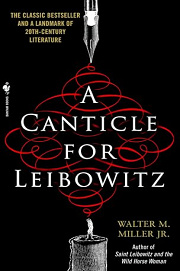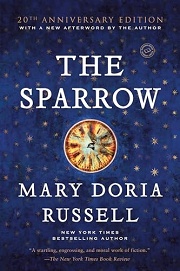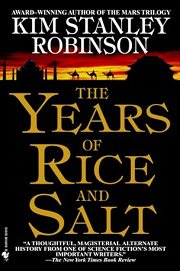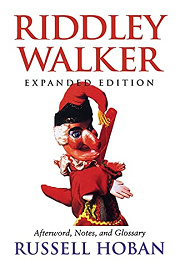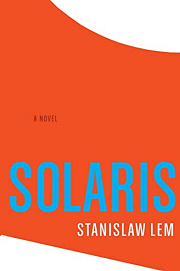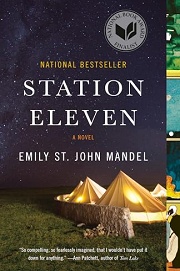Share your thoughts in a quick Shelf Talk!
A Canticle for Leibowitz by Walter M. Miller Jr.
Centuries after a nuclear apocalypse, a secluded order of monks safeguards fragments of lost knowledge against the cycles of human folly. Stark, wise, and darkly funny, A Canticle for Leibowitz is a landmark of post‑apocalyptic science fiction that lingers long after the last page.
Have you read this book? Share what you liked (or didn’t), and we’ll use your answers to recommend your next favorite read!
Love A Canticle for Leibowitz but not sure what to read next?
These picks are popular with readers who enjoyed this book. Complete a quick Shelf Talk to get recommendations made just for you! Warning: possible spoilers for A Canticle for Leibowitz below.
In A Canticle for Leibowitz, did you enjoy ...
... faith-driven inquiry colliding with the unknown?
The Sparrow by Mary Doria Russell
If the monks’ devotion to preserving knowledge after the Flame Deluge—and Abbot Zerchi’s anguished clashes with a secular state—captivated you, you’ll be gripped by the Jesuit mission in The Sparrow. Father Emilio Sandoz and his companions set out to meet an alien civilization with the same earnest, sacrificial zeal that Brother Francis brought to illuminating Saint Leibowitz’s “blueprints,” and they return to confront harrowing questions of suffering, innocence, and vocation. It’s that same piercing test of belief you felt in the euthanasia-clinic scenes, now refracted through first contact and its moral fallout.
... a centuries-spanning meditation on civilizations rising, collapsing, and being reborn?
The Years of Rice and Salt by Kim Stanley Robinson
If the triptych structure of A Canticle for Leibowitz—from desert abbey to rediscovered electricity to starward exodus—hooked you with its sweeping sense of recurrence, this novel’s reincarnating cast will scratch the same itch. As in the monks’ long vigil over the Memorabilia, you watch ideas preserved, distorted, and reborn across eras. The book’s grand timescale mirrors Canticle’s generational arc, asking how memory, faith, and scholarship shape the long recovery from catastrophe.
... a shattered culture rebuilding meaning from garbled relics and half-remembered science?
Riddley Walker by Russell Hoban
If Brother Francis painstakingly illuminating a circuit diagram like a holy icon delighted you, Riddley Walker will feel eerily kin. In a post-Deluge England, Riddley deciphers myths forged from fragments of lost technology—much as the Order of Saint Leibowitz tends the Memorabilia. The Punch-and-Judy pageants echo how Canticle’s relics become scripture, and the novel’s haunting journey through ruins channels the same solemn, often wry reckoning with what humanity chooses to remember.
... probing the limits of human understanding and the ethical weight of knowledge?
Solaris by Stanislaw Lem
If Canticle’s debates—whether to revive dangerous tech, or Zerchi’s moral stand against state-sanctioned mercy—stayed with you, Solaris offers a similarly bracing confrontation with the unknown. Psychologist Kris Kelvin faces an alien ocean that mirrors human guilt and longing, forcing the kind of self-interrogation that follows Brother Francis’s discovery of Leibowitz’s relics. It’s an austere, searching experience that asks what knowledge costs—and who we become when we pursue it.
... artifacts turning into sacred texts and symbols that outlive civilization?
Station Eleven by Emily St. John Mandel
If you were moved by how a grocery list and a “Blessed Saint Leibowitz, engineer” blueprint become sanctified over centuries, you’ll appreciate the way Station Eleven treats a handmade comic and Shakespeare as lifelines of meaning after collapse. The Traveling Symphony’s motto—“Survival is insufficient”—echoes the Abbey’s quiet, stubborn stewardship, while the Prophet shows how scripture can warp, much like Canticle’s uneasy dance between relic and revelation.
Unlock your personalized book recommendations! Just take a quick Shelf Talk for A Canticle for Leibowitz by Walter M. Miller Jr.. It’s only a few questions and takes less than a minute.
